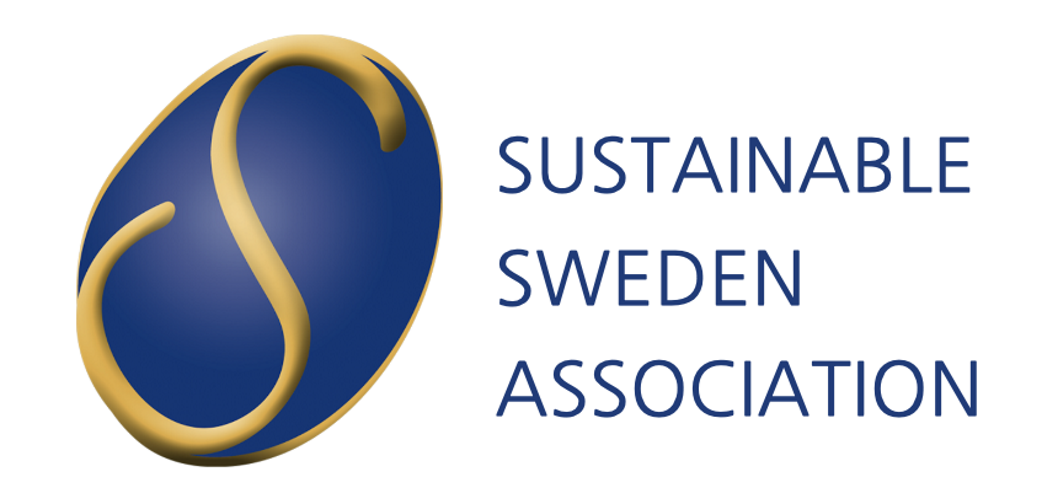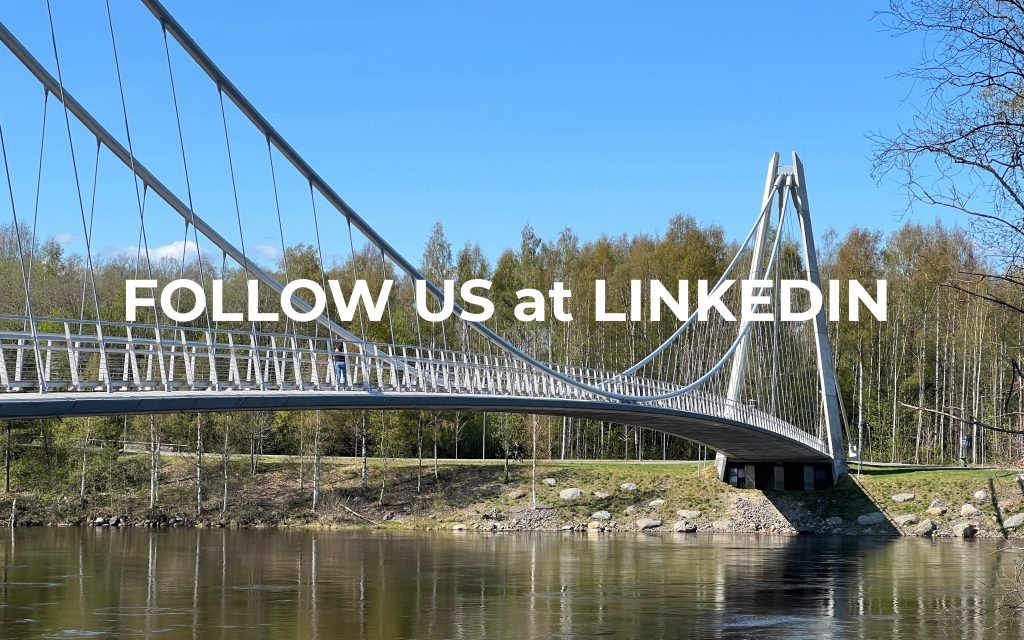Thanks to our donors:
 (Esam AB)
(Esam AB)  (3led Solutions AB)
(3led Solutions AB)- EcoLogical
GOAL: 100,000 SEK
AMOUNT COLLECTED: 7,000 SEK (7%)
If you want to contribute to the Merewa Monastery’s project, please contact Mikael Brändström (mikael.brandstrom@esam.se).
The Merewa monastery in Ethiopia: clean water for Christmas!
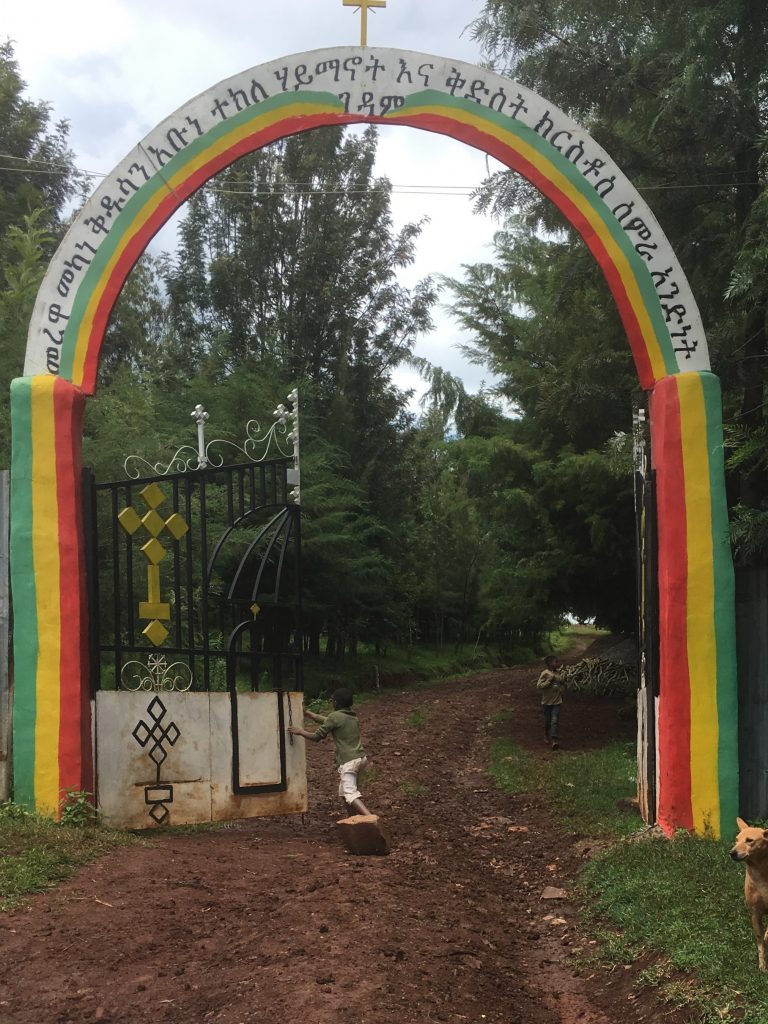
For Christmas, Sustainable Sweden Association (SSA) and Sustainable Sweden Development of Ethiopia (SSDE) are inviting companies to finance a local sustainable initiative in Ethiopia, the Merewa Monastery. The mission of this project is to improve the farming production in a sustainable way and the living conditions of the community who live within and around the monastery. Water issue is the main challenge today and the Merewa Monastery is badly looking for funding to address this issue. We think that this project is a really good example in sustainability and will dedicate our resources to help them. We are therefore humbly inviting you to support the Merewa Monastery!
The Merewa monastery in a nutshell
The Merewa Monastery was established 80 years ago under the Ethiopian Orthodox Tewahido Church. It is located 8km away from Jimma, in the Oromia region of Ethiopia (see map). The total area of compound of the Monastery is a little over 18 hectares, and during the last two to three years different development activities have been initiated and being implemented. This initiative can be considered as what we call “a golden egg” in the Eco-municipality project that SSA is coordinating in Ethiopia together with SIDA and UN Habitat.
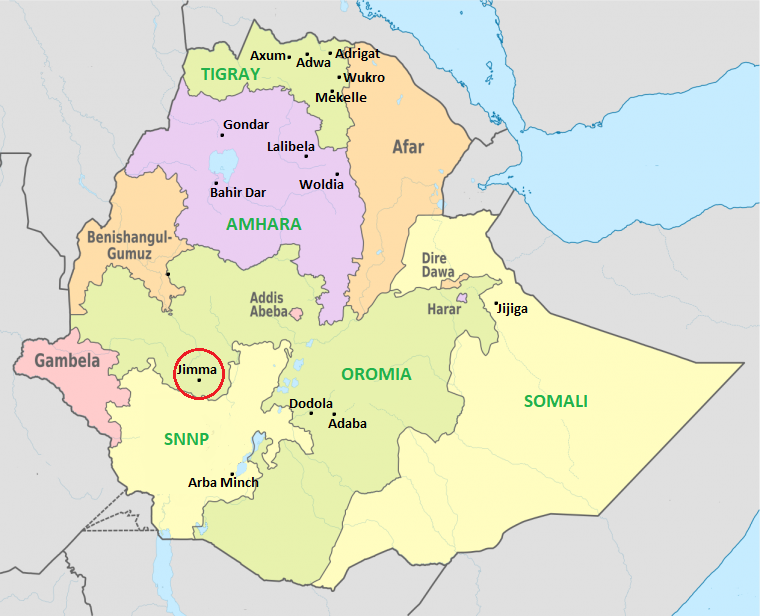
This local project called “The Merewa Monastery Social Development Initiative” was started in 2016. The main objectives of the project are to: produce different crop and livestock products for Monastery community use and income generation; avail breeding animals and improved crop varieties at reasonable price for the surrounding farming population; provide grain milling service and clean and safe water for the monastery and nearby communities, generate employment opportunity, establish and conserve various plant species within and around the Monastery, and produce different handcraft products for selling at farm gate shop and at Jimma town.
The agricultural sector plays a central role in the economic and social life of Ethiopia and is a cornerstone of the country’s economy. About 80-85 percent of the people are employed in agriculture, especially farming. The sector contributes about 40 percent of total GDP; livestock and their products account for about 20 percent of agricultural GDP.
The Merewa project intends to achieve food and water security for the monastery community as well as the surrounding farming community and in turn would play significant role in poverty reduction, while maintaining the environment. The Merewa Monastery project combines the economic and sustainable goals, that is why we call it a “golden egg”.
The water’s issue
The quality of the water and its supply are the biggest challenges that the project faces today. The water issue concerns several of their objectives like the improvement of the crop production and of the living conditions of the Monastery community as well as its surrounding farming community. Under current situation the surface water that the community of the Merewa Monastery uses is unreliable due to variability of rainfall. It is also highly vulnerable to contamination because of the natural alteration and anthropogenic interventions. Consequently, one important objective of the project is to construct new facilities to create access to the ground water which is safer and more reliable. The experts, who are technically supporting the Merewa Monastery development endeavors on voluntary basis, have already realized studies of the geological and surface parameters to define the needs, but they are in need of financial means and further technical expertise. That’s why they need your help!
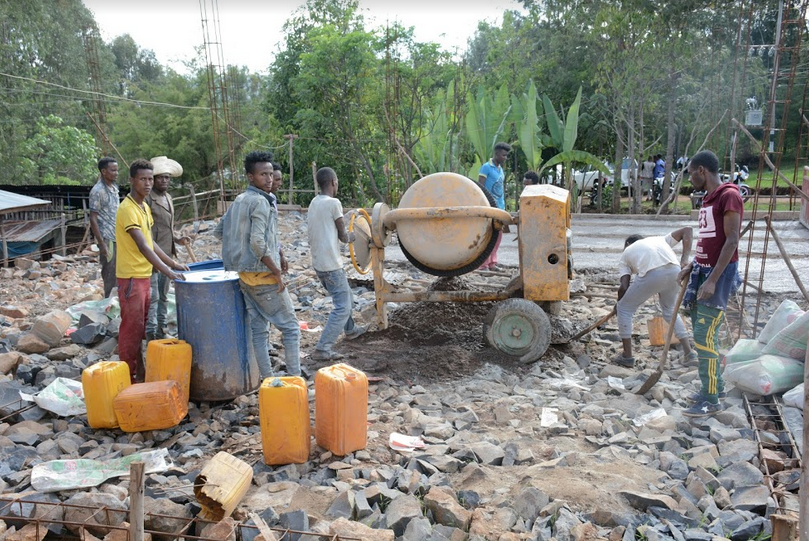
The facilities needed and major components of the water project
To provide safe, potable and adequate water supply services, the experts of the monastery established a list of the most critical components needed for the water project:
- Drilling of borehole
- Construction of switch board and guard house
- Supply and installation of submersible pump
- Transformer and switch board
- Construction of water reservoir and water point
- Lying of pressure pipes from Borehole to water reservoir, lying of distribution pipes from water reservoir to water point and to command area
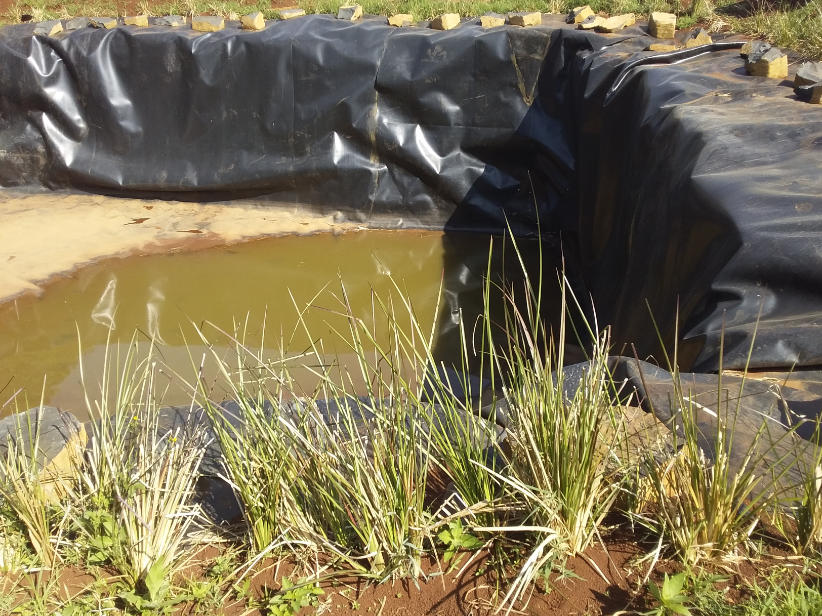
Together with that some additional facilities are needed as:
- Water source from borehole
- Rising pipe line
- Riser pipe
- Water reservoir
- Distribution pipe line
- Public tap
The project outcomes
Your donation to the Merewa Monastery will be used to finance these facilities together with technical expertise.
By solving the water issue, the inhabitants of the town and the surrounding community will benefit from an important improvement of their life standard. Even though the main objective is to improve the supply of water, there will have other outcomes as; better health condition, increased time during the year when production can be done, higher efficiency regarding production time, lowering need of medical treatment and reducing child mortality.
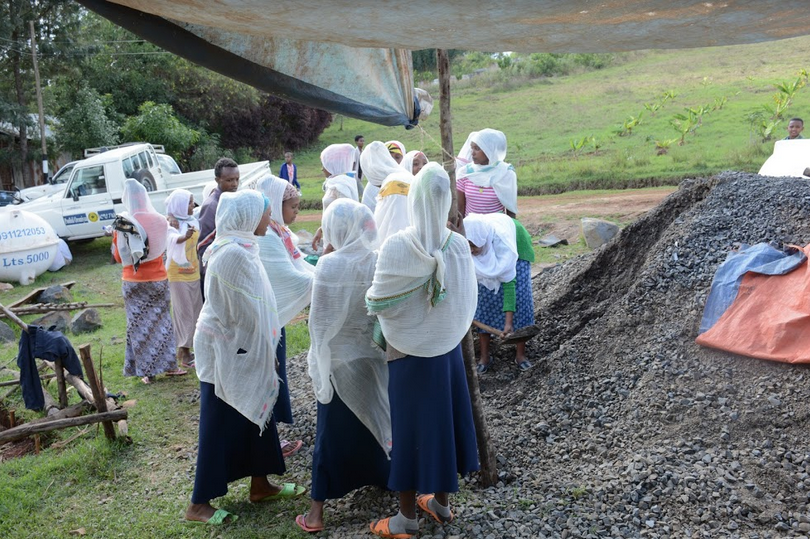
Moreover, in a gender perspective, the improvement of the access to water will lead to empowerment of women. Fetching water is one of the burdens vested up on women and children, especially girls. Having piped water at home and public fountains will reduce the time and the energy spent to fetch water and enable women to have a job and girls to have time to go to school.
The Merewa Monastery as partner of the pilot-project for Eco-municipalities in
Ethiopia
Sustainable Sweden Association (SSA) and Sustainable Sweden Development of Ethiopia (SSDE) see a high potential in this social development initiative. This project is a democratic project that encourages the empowerment of people while considering the environmental issues at the same time. In the future, the Merewa Monastery can also become one of the capacity centers in Ethiopia and people will come to learn best practices associated to farming, water management, multiplication and conservation of various useful plant species. We also think that this initiative can inspire abroad, that is why we plan to organize Sustainable Ethiopian Tours in the future and this monastery could be part of it.
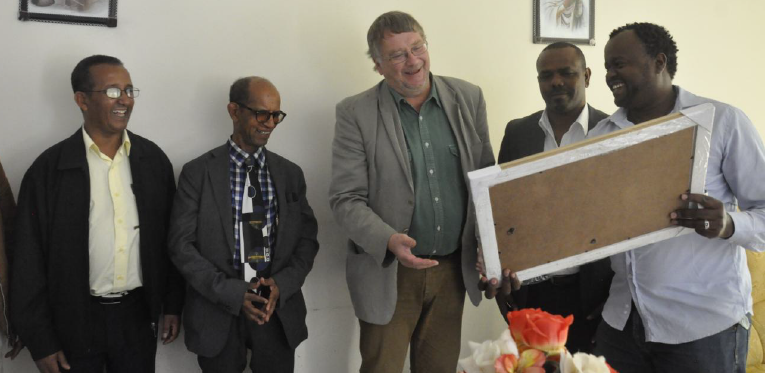
Donation and reward
As financial partners of the project, the donors will also be invited to visit the Merewa Monastery in 2020 to learn more about the project and the technical skills of the community. We will also deliver a certificate to the donors to certify their contribution to the Merewa Monastery project in Ethiopia.
